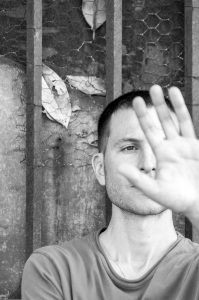 A young man in recovery told me, You can’t force sobriety on anybody. Cause Mum tried everything. She gave me money, didn’t give me money, made me go to rehab, didn’t make me go to rehab, drove four or five hours to pick me up, and then left me somewhere. No matter how many rehabs I’ve done or how many counselors or meetings I went to, I never got it until, one day, I was just sick of it and had enough.
A young man in recovery told me, You can’t force sobriety on anybody. Cause Mum tried everything. She gave me money, didn’t give me money, made me go to rehab, didn’t make me go to rehab, drove four or five hours to pick me up, and then left me somewhere. No matter how many rehabs I’ve done or how many counselors or meetings I went to, I never got it until, one day, I was just sick of it and had enough.
My reflection: Over fourteen years, I tried to force sobriety on my son in countless ways. I wept, yelled, bargained, and threatened. I would have sold my soul if that would have made the difference.
Today’s Promise: We can try to force our loved ones into sobriety, but with the majority of people coercion doesn’t work. People must be ready to change. It’s a deeply personal decision that can only be made by them. Today, I’ll encourage my loved one to attend an AA meeting or at least talk with someone in recovery. I’ve never seen coerced recovery work, but I have experienced the power of encouragement and ‘staying close.’






 A friend wrote to me: The hardest thing of all for me is to see that we, families and friends, walk a different and separate path from those we love who suffer from the disease of addiction. How can we feel happiness or find peace when someone we love is in pain? We each have to answer that in our own way. I do not always follow this or do it with grace, but I keep trying.
A friend wrote to me: The hardest thing of all for me is to see that we, families and friends, walk a different and separate path from those we love who suffer from the disease of addiction. How can we feel happiness or find peace when someone we love is in pain? We each have to answer that in our own way. I do not always follow this or do it with grace, but I keep trying. A friend wrote to me: I think no one but an addict’s mother, family, and loved ones will ever truly understand how much courage, love, and suffering it takes to do nothing. Even staying close means the sacrifice of witnessing without taking the actions that blind love demands. How admirable and impossibly painful it is to love without attempting to rescue.
A friend wrote to me: I think no one but an addict’s mother, family, and loved ones will ever truly understand how much courage, love, and suffering it takes to do nothing. Even staying close means the sacrifice of witnessing without taking the actions that blind love demands. How admirable and impossibly painful it is to love without attempting to rescue.
6 Comments.
View Comments | Leave a Comment